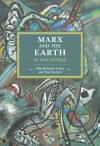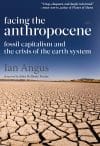
Marxist Ecology


Marx as a Food Theorist
Food has become a core contradiction of contemporary capitalism. Discussions of the economics and sociology of food and food regimes seem to be everywhere today, with some of the most important contributions made by Marxian theorists. Amid plentiful food production, hunger remains a chronic problem, and food security is now a pressing concern for many of the world’s people.… Despite the severity of these problems and their integral relation to the capitalist commodity system, it is generally believed that Karl Marx himself contributed little to our understanding of food…. [Yet] food for Marx was far more than a “passing interest”: in his work one finds analyses of the development of agriculture in different modes of production; climate and food cultivation; the chemistry of the soil; industrial agriculture; livestock conditions; new technologies in food production and preparation; toxic additives in food products; food security; and much more. Moreover, these issues are not peripheral, but organically connected to Marx’s larger critique of capitalism. | more…

Why Ecosocialism Needs Marx
In his recent foreword to the second edition of Paul Burkett’s Marx and Nature, John Bellamy Foster reflected on a significant change in left attitudes toward Marx’s ecology: “Today Marx’s understanding of the ecological problem is being studied in universities worldwide and is inspiring ecological actions around the globe.” This worldwide recognition of Marx’s ecological critique of capitalism without doubt owes much to Burkett’s Marx and Nature (1999) and Foster’s Marx’s Ecology (2000). Yet the new interest in ecological Marxism did not originate solely with these books. Rather, as their new co-authored book Marx and the Earth documents, over the last fifteen years Burkett and Foster have meticulously refuted the many criticisms of Marx from so-called “first-stage ecosocialists”…. It should be noted that, whatever their disagreements with Marx, the first-stage ecosocialists were also deeply critical of capitalism. So why are Foster and Burkett arguing with their potential comrades? Furthermore, some of the issues taken up in Marx and the Earth might appear abstruse at first glance—why bother debating them at such length?… [A] patient reader will soon recognize the book’s importance and the significance of the issues at stake. | more…
Marxism and the Dialectics of Ecology
The recovery of the ecological-materialist foundations of Karl Marx’s thought, as embodied in his theory of metabolic rift, is redefining both Marxism and ecology in our time, reintegrating the critique of capital with critical natural science. This may seem astonishing to those who were reared on the view that Marx’s ideas were simply a synthesis of German idealism, French utopian socialism, and British political economy.… The rediscovery of Marx’s metabolism and ecological value-form theories, and of their role in the analysis of ecological crises, has generated sharply discordant trends. Despite their importance in the development of both Marxism and ecology, neither idea is without its critics. One manifestation of the divergence on the left in this respect has been an attempt to appropriate aspects of Marx’s social-metabolism analysis in order to promote a crude social “monist” view based on such notions as the social “production of nature” and capitalism’s “singular metabolism.” Such perspectives, though influenced by Marxism, rely on idealist, postmodernist, and hyper-social-constructivist conceptions, which go against any meaningful historical-materialist ecology and tend to downplay (or to dismiss as apocalyptic or catastrophist) all ecological crises—insofar as they are not reducible to the narrow law of value of the system. | more…

Learning from Late Marx
Recent years have seen the development of a fresh area of research into Marx’s critique of political economy, based on his previously unpublished economic manuscripts and notebooks, which have been made newly available in the updated edition of the complete works of Marx and Engels, the Marx-Engels-Gesamtausgabe (MEGA). Lucia Pradella published the first detailed analysis in English of Marx’s London Notebooks, and Brill’s Historical Materialism book series recently celebrated its hundredth volume with a translation of Marx’s original manuscript for volume 3 of Capital, based on the new MEGA edition. The same series also published Heather Brown’s Marx on Gender, which drew extensively on his late notebooks. And earlier this year, the second, expanded edition of Kevin Anderson’s Marx at the Margins: On Nationalism, Ethnicity and Non-Western Societies appeared. The first edition of Anderson’s book, published in 2010, inaugurated this new trend in Marxist studies, and it remains among the most important achievements in the field. | more…
Marx’s Ecology and the Left
One of the lasting contributions of the Frankfurt School of social theorists, represented especially by Max Horkheimer and Theodor Adorno’s 1944 Dialectic of Enlightenment, was the development of a philosophical critique of the domination of nature.… Yet their critique of the Enlightenment exploitation of nature was eventually extended to a critique of Marx himself as an Enlightenment figure, especially in relation to his mature work in Capital.… So all-encompassing was the critique of the “dialectic of the Enlightenment” within the main line of the Frankfurt School, and within what came to be known as “Western Marxism”…, that it led to the estrangement of thinkers in this tradition not only from the later Marx, but also from natural science—and hence nature itself. Consequently, when the ecological movement emerged in the 1960s and ’70s, Western Marxism, with its abstract, philosophical notion of the domination of nature, was ill-equipped to analyze the changing and increasingly perilous forms of material interaction between humanity and nature. | more…

Facing the Anthropocene: Fossil Capitalism and the Crisis of the Earth System
Science tells us that a new and dangerous stage in planetary evolution has begun—the Anthropocene, a time of rising temperatures, extreme weather, rising oceans, and mass species extinctions. Humanity faces not just more pollution or warmer weather, but a crisis of the Earth System. If business as usual continues, this century will be marked by rapid deterioration of our physical, social, and economic environment. Large parts of Earth will become uninhabitable, and civilization itself will be threatened. Facing the Anthropocene shows what has caused this planetary emergency, and what we must do to meet the challenge. | more…
Nature
“Nature,” wrote Raymond Williams in Keywords, “is perhaps the most complex word in the language.” It is derived from the Latin natura, as exemplified by Lucretius’s great didactic poem De rerum natura (On the Nature of Things) from the first century BCE. The word “nature” has three primary, interrelated meanings: (1) the intrinsic properties or essence of things or processes; (2) an inherent force that directs or determines the world; and (3) the material world or universe, the object of our sense perceptions—both in its entirety and variously understood as including or excluding God, spirit, mind, human beings, society, history, culture, etc. | more…
Marx’s Ecological Notebooks
Karl Marx has long been criticized for his so-called ecological “Prometheanism”—an extreme commitment to industrialism, irrespective of natural limits. This view, supported even by a number of Marxists, such as Ted Benton and Michael Löwy, has become increasingly hard to accept after a series of careful and stimulating analyses of the ecological dimensions of Marx’s thought, elaborated in Monthly Review and elsewhere. The Prometheanism debate is not a mere philological issue, but a highly practical one, as capitalism faces environmental crises on a global scale, without any concrete solutions. Any such solutions will likely come from the various ecological movements emerging worldwide, some of which explicitly question the capitalist mode of production. Now more than ever, therefore, the rediscovery of a Marxian ecology is of great importance to the development of new forms of left strategy and struggle against global capitalism.… Yet there is hardly unambiguous agreement among leftists about the extent to which Marx’s critique can provide a theoretical basis for these new ecological struggles.… This article… [takes] a different approach… [investigating] Marx’s natural-scientific notebooks, especially those of 1868, which will be published for the first time in volume four, section eighteen of the new Marx-Engels-Gesamtausgabe(MEGA). | more…
Marxism and Ecology
Common Fonts of a Great Transition
To link Marxism and ecological transition may seem at first like trying to bridge two entirely different movements and discourses, each with its own history and logic: one having mainly to do with class relations, the other with the relation between humans and the environment. However, historically socialism has influenced the development of ecological thought and practice, while ecology has informed socialist thought and practice. Since the nineteenth century, the relationship between the two has been complex, interdependent, and dialectical.… This essay unearths the deep ecological roots of Marx’s thought, showing how he brought an environmental perspective to bear on the overarching question of social transformation. From there it traces the evolution of Marxian ecology, illuminating its profound, formative link to modern ecological economics and systems ecology. It concludes with the wider project of building the broad and deep social movement required to halt and reverse ecological and social destruction. | more…
Reconstructing Marx’s Critique of Political Economy from His London Notebooks
In 2012, the second section of the new historical-critical edition of Marx and Engels’s complete writings, the Marx-Engels-Gesamtausgabe (MEGA), was finally completed, and all the editions and manuscripts of Capital became available in order to trace Marx’s own theoretical development and Engels’s editorial works. The remaining three sections are, however, only halfway completed, and it will likely take at least another twenty years before all the work is finished.… What is more, a great number of them are Marx’s journal fragments and excerpts, which have not yet been published in any language. In this sense, the distinct importance of continuing the MEGA project is the further publication of these unknown notebooks, which promise to reveal Marx’s unfinished undertaking, the critique of political economy.… It is therefore no coincidence that a new trend has emerged in the last few years of scholars studying Marx’s notebooks. Works like Kevin Anderson’s Marx at the Margins, Heather Brown’s Marx on Gender, and my own article on Liebig in Monthly Review have shown the underestimated theoretical dimensions of anti-colonialism, gender, and ecology in Marx’s thought. | more…
The Great Capitalist Climacteric
Marxism and "System Change Not Climate Change"
Humanity today is confronted with what might be called the Great Capitalist Climacteric. In the standard definition, a climacteric (from the Greek klimaktēr or rung on the ladder) is a period of critical transition or a turning point in the life of an individual or a whole society. From a social standpoint, it raises issues of historical transformation in the face of changing conditions. In the 1980s environmental geographers Ian Burton and Robert Kates referred to “the Great Climacteric” to address what they saw as the developing global ecological problem of the limits to growth…. I will use the term the Great Capitalist Climacteric here to refer to the necessary epochal social transition associated with the current planetary emergency. It refers both to the objective necessity of a shift to a sustainable society and to the threat to the existence of Homo sapiens (as well as numerous other species) if the logic of capital accumulation is allowed to continue dictating to society as a whole. The current world of business as usual is marked by rapid climate change, but also by the crossing or impending crossing of numerous other planetary boundaries that define “a safe operating space for humanity.” | more…